Car Accidents Can Be Stressful
Getting into a collision on the roadway can be stressful. You may have to deal with injuries and repairs to your vehicle. If the other party believes you are at fault for the car accident, they may try to make a claim against you or file a lawsuit against you to seek compensation. That can drag the stress out for even longer and put you in a precarious financial situation.
Keep reading below to learn from our top-rated attorneys for car wreck cases in Las Vegas what someone might take from you if you are sued for a car accident.
What Is a Judgment Creditor?
Before anything can be collected from you via legal means, the other party has to win a lawsuit against you in the case.

This means they must demonstrate in a court of law the following facts:
- The accident in question did occur
- You were liable for the accident—in the state of Nevada, they must prove that you were at least 50 percent liable for the accident
- That they suffered specific losses due to injuries and damages sustained in the accident
If the judge or jury believes the other party—who is known as the plaintiff—proves these facts, they may decide in the plaintiff’s favor. They also decide how much to award the plaintiff.
The plaintiff then becomes what is called a judgment creditor against you. They hold the same position legally that a credit card company that sued you for a past-due balance and won might hold. In short, you legally owe the money awarded to them, and they can use legal means such as wage garnishment to collect that money if necessary.
Won’t Insurance Pay These Debts for You?
You might wonder how much protection insurance offers in this case. Your insurance company should pay out before you do. That means it will pay out up to the limits of your liability policy before you personally pay any amount of an ordered judgment.

For example, say you are found at fault in a distracted driving accident, and your liability policy is for $100,000. If the plaintiff is awarded $50,000, the insurance pays the total amount, and you have no further obligations in the matter. However, if the plaintiff is awarded $150,000, you would owe a remaining $50,000 after insurance pays out your maximum policy amount.
At this point, the plaintiff can exercise legal rights to your property. They may be able to compel you to hand over cash reserves or sell certain property to make payment on this debt.
What Is Exempt From Being Taken in a Lawsuit?
Some assets are exempt from being taken by judgment creditors. For example, the homestead exemption protects your primary home as long as you don’t have more than $605,000 in equity in the property. This means in most cases, you would not be required to sell your home to make good on a debt related to a lawsuit. This exemption does not apply to other properties, such as second homes, rental properties, or vacation properties.
The same is true of your vehicle up to $15,000 in equity. So, for example, if you have a vehicle that is valued at $25,000 and you are paying on a loan with a balance of $18,000, the vehicle would be exempt. It only has equity of $7,000.

Other assets that are exempt include most retirement funds, including Roth IRAs, value in 401(k) plans, and pensions, as well as a certain amount in household goods and furniture. Life insurance payouts and government benefits, such as Social Security payments, are also exempt. Court-ordered alimony or child support is exempt. However, any voluntary money provided by your ex outside of a court order is not exempt.
How Can the Plaintiff Collect Money Owed to Them?
Plaintiffs who have won a judgment against someone after a car accident can work to collect the money via all the methods other creditors have at their disposal. That includes:
- Setting up agreements for regular payments. If someone can’t cover the total judgment amount, plaintiffs might agree to accept regular monthly payments over a period of time until the amount is paid off.
- Garnishing wages. The individual may file a motion to garnish your wages. They can take up to a certain amount of your disposable income. Typically, the garnishment is filed with your employer, and your employer takes the amount out of your paycheck before you receive it. The employer then forwards the amount to the judgment creditor or their agent.
- Levying your bank accounts. If you have cash in checking or savings accounts, the judgment creditor might file a motion to levy those accounts and take the money. The only time this is not true is when the cash in the accounts is part of exempt benefits such as court-ordered child support or government benefits.
Why You Need a Personal Injury Defense Attorney
As you can see, being found at fault in a car accident can lead to serious financial consequences. A personal injury defense attorney can help you safeguard your interests and work toward a more favorable solution—which might include settling for a lesser amount or making a case against the plaintiff in court.
If you are the injured party in a car accident, an experienced personal injury lawyer can offer the opposite benefits. They can help you prove your case and then exercise any rights to compensation once you receive a judgment in your favor.
Whatever side of a car accident case you fall on, don’t waste time and put your interests at risk. Contact the team at High Stakes Injury Law today to find out how we can help.
